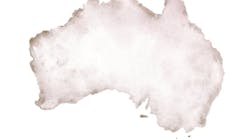Washington, DC�The US Department of Justice and Rhode Island Thursday announced a settlement with several parties for the restoration of Block Island Sound, polluted in a 1996 oil spill.
EW Holding Corp., K-Sea Transportation Corp., Capt. Gregory Aitken, and the West of England Ship Owners Mutual Insurance Association will pay $8 million for the restoration of natural resources and more than $3.3 million to reimburse state and federal agencies for their costs in assessing environmental damages. The civil settlement is in addition to $8.5 million in criminal penalties imposed in 1998 on the owners of the barge responsible for the spill.
DOJ said, during a 1996 storm, the 340-ft oil barge North Cape ran aground on Ninigret National Wildlife Refuge after the tug towing it caught fire. More than 828,000 gal of home heating oil spilled, killing an estimated 9 million lobsters, more than 2,000 marine birds, and 1 million lb of clams, oysters, and other crustaceans.
The $8 million settlement agreement requires the defendants to spend about $1.2 million to restock Block Island Sound with 1.25 million female lobsters during the next 3-5 years. The lobsters will be purchased from wholesalers, and their tails will be notched so they cannot be harvested legally.
The defendants will spend $1.5 million to restore shellfish populations, transplanting about 10.2 million adult quahogs to sanctuaries in Narragansett Bay; $1.6 million to buy and preserve land that would have been developed near a salt pond; and $3 million to buy and protect loon habitats. Another $700,000 will be spent on sea bird, piping plover, and recreational fish restoration projects.
